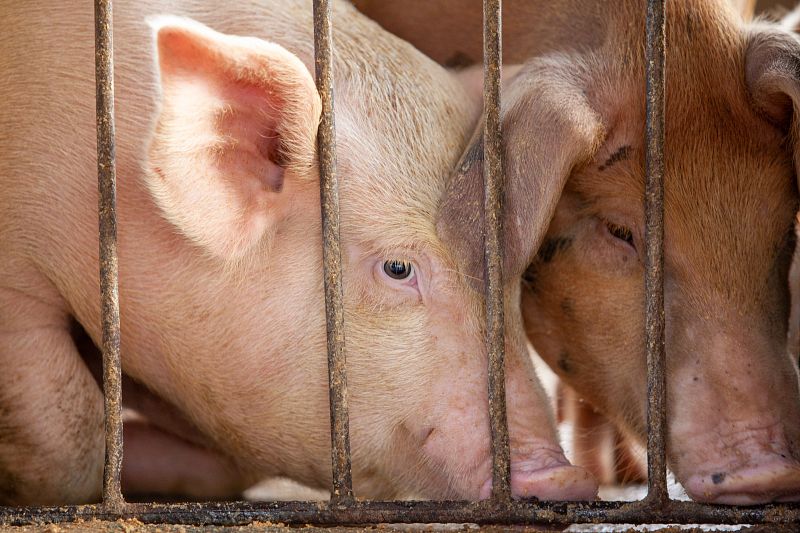Organ Transplants From Different Species Risky and Costly, New Paper Argues

WASHINGTON, D.C.—Organ xenotransplantation, the transplantation of genetically engineered organs from pigs to humans, is not a viable solution for the organ shortage, according to a new article by authors affiliated with the Physicians Committee for Responsible Medicine and New York University Grossman School of Medicine published in Advanced Biology.
The paper comes on the heels of approval from the Food and Drug Administration for the first ever xenotransplantation clinical trials. Six xenotransplants have been attempted since 2022, receiving widespread, primarily favorable news coverage. None of the first four patients survived for more than a couple months, the fifth just passed the two-month mark last month, and the sixth’s surgery was on Jan. 25.
For years, billions of dollars of public and private funds have been invested in the approach with little to show for it. The authors call for a more careful consideration of the immunological limitations of xenotransplantation; the risk of infectious disease transmission to recipients, healthcare workers, and their communities; and the ethical and environmental implications of creating a new form of resource-intensive industrialized farming required to breed and raise pigs for organ production in pathogen-free environments. The paper finds the allure of xenotransplantation to be a hindrance to the pursuit of more sensible alternative solutions. Rather than sink finite funds into the impractical and costly option of xenotransplantation, the authors argue that investments should be made in improvements to human organ transplantation—such as increasing organ donation and recovery, improving organ preservation and transport methods, expanding donor criteria, and improving the diagnosis and management of organ rejection—and in measures to reduce demand for transplants in the first place.
Disease prevention is ripe for investment and can address end-stage organ failure caused by preventable chronic diseases like coronary artery disease, adult-onset diabetes, emphysema, and cirrhosis. More ethical and viable biotechnology solutions also exist, like regenerative therapies, bioprinting, and stem cell technologies, not only for repairing damaged organs but perhaps one day replacing them.
“Xenotransplantation may be a radical concept that’s exciting to the press and fascinating to the public, but it’s a dangerous distraction from the sensible, evidence-based solutions that could zero the organ waitlist with as much investment and attention,” said lead author Catharine E. Krebs, PhD, medical research program manager with the Physicians Committee. “More than 100,000 waitlisted patients are counting on us to work together to improve transplant systems and practices. Let’s not flounder this responsibility by betting on a morally problematic and impractical silver bullet.”
For more information or to speak with Dr. Krebs, please contact Reina Pohl at 202-527-7326 or rpohl [at] pcrm.org (rpohl[at]pcrm[dot]org).
Media Contact
Reina Pohl, MPH
202-527-7326
rpohl[at]pcrm.org
Founded in 1985, the Physicians Committee for Responsible Medicine is a nonprofit organization that promotes preventive medicine, conducts clinical research, and encourages higher standards for ethics and effectiveness in education and research.








